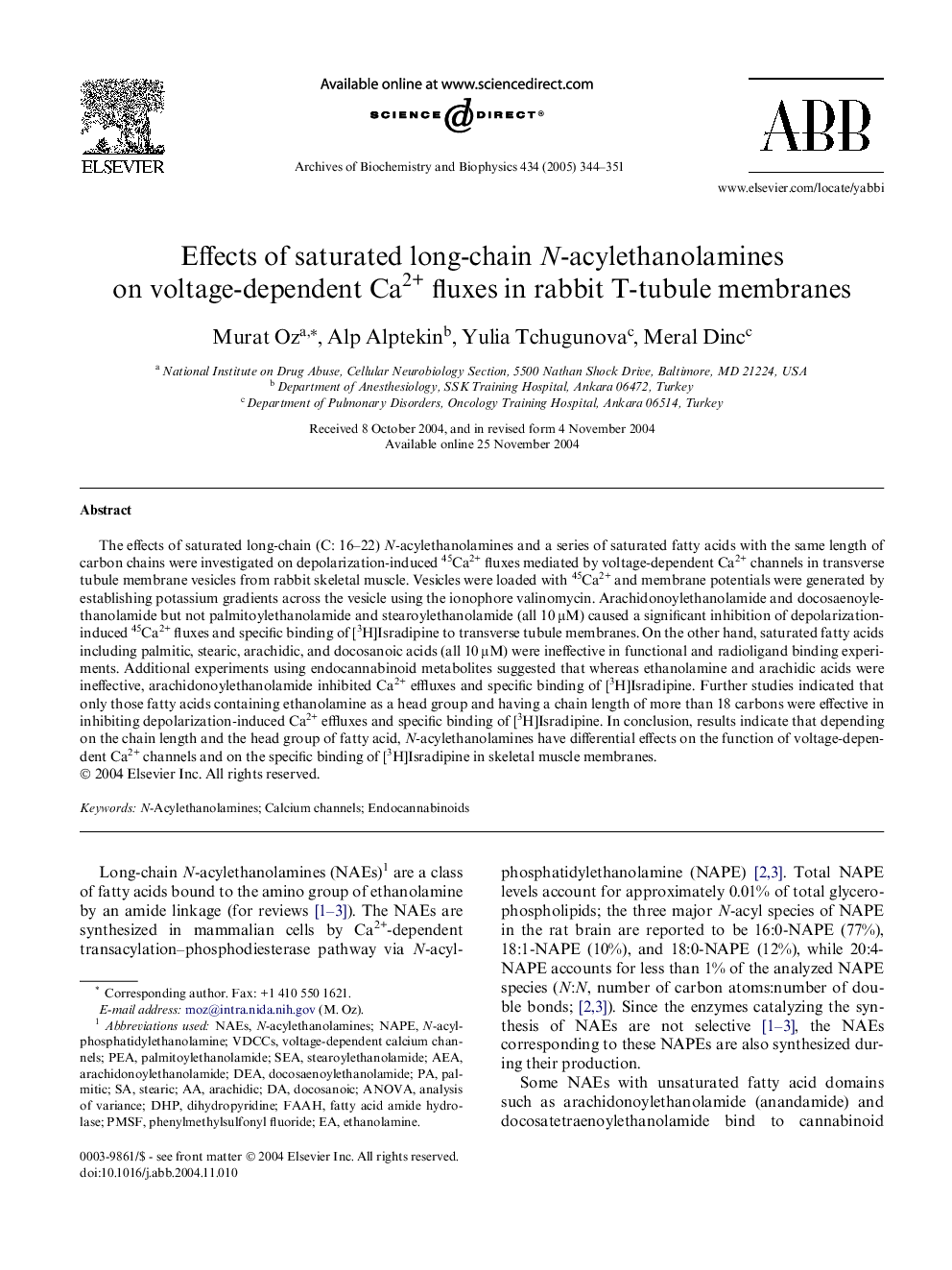| Article ID | Journal | Published Year | Pages | File Type |
|---|---|---|---|---|
| 9882341 | Archives of Biochemistry and Biophysics | 2005 | 8 Pages |
Abstract
The effects of saturated long-chain (C: 16-22) N-acylethanolamines and a series of saturated fatty acids with the same length of carbon chains were investigated on depolarization-induced 45Ca2+ fluxes mediated by voltage-dependent Ca2+ channels in transverse tubule membrane vesicles from rabbit skeletal muscle. Vesicles were loaded with 45Ca2+ and membrane potentials were generated by establishing potassium gradients across the vesicle using the ionophore valinomycin. Arachidonoylethanolamide and docosaenoylethanolamide but not palmitoylethanolamide and stearoylethanolamide (all 10 μM) caused a significant inhibition of depolarization-induced 45Ca2+ fluxes and specific binding of [3H]Isradipine to transverse tubule membranes. On the other hand, saturated fatty acids including palmitic, stearic, arachidic, and docosanoic acids (all 10 μM) were ineffective in functional and radioligand binding experiments. Additional experiments using endocannabinoid metabolites suggested that whereas ethanolamine and arachidic acids were ineffective, arachidonoylethanolamide inhibited Ca2+ effluxes and specific binding of [3H]Isradipine. Further studies indicated that only those fatty acids containing ethanolamine as a head group and having a chain length of more than 18 carbons were effective in inhibiting depolarization-induced Ca2+ effluxes and specific binding of [3H]Isradipine. In conclusion, results indicate that depending on the chain length and the head group of fatty acid, N-acylethanolamines have differential effects on the function of voltage-dependent Ca2+ channels and on the specific binding of [3H]Isradipine in skeletal muscle membranes.
Related Topics
Life Sciences
Biochemistry, Genetics and Molecular Biology
Biochemistry
Authors
Murat Oz, Alp Alptekin, Yulia Tchugunova, Meral Dinc,
